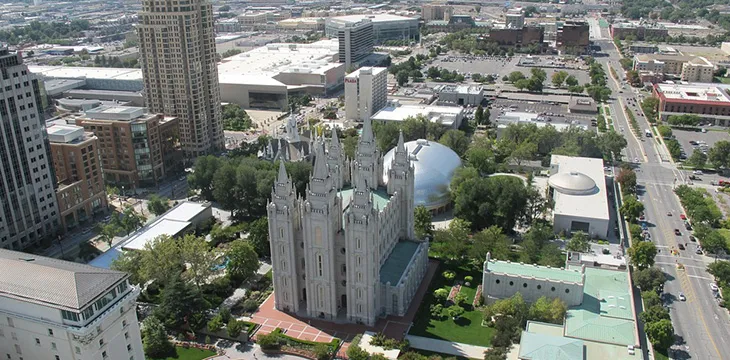|
Getting your Trinity Audio player ready...
|
This past March, Utah joined a small handful of other states in the U.S. when it announced that it was ready to fully embrace the use of blockchain technology. Wyoming, Ohio and Pennsylvania are already on board, as are select cities and towns across the country. As the federal U.S. government continues to drag its feet on blockchain and cryptocurrency regulations, states and local governments are taking matters into their own hands in an effort to keep FinTech innovation from jumping ship and moving out of the country. In Utah’s latest example of the acceptance of blockchains, municipal elections in one county in the state will soon be conducted with the technology.
According to a press release, Utah County will allow mobile voting in the upcoming primary election in August. The elections will be held on collaboration with Tusk Philanthropies and will allow voting by active-duty military, overseas voters and their eligible dependents. Tusk is now involved in three different pilot blockchain election projects.
According to the release, “The pilot is a collaboration between the Utah County Elections Division, Voatz, Tusk Philanthropies and the National Cybersecurity Center. Eligible voters will be able to participate in the upcoming election by opting in to vote electronically on their smartphones. Voters will fill out an absentee ballot request, complete their identity authentication and verification on the Voatz application, and submit their ballot for the election. Voting began June 28th and continues through 8:00 pm on Election Day, August 13.”
Voatz is a mobile voting platform that has been built around military-grade technology. It has been used in 40 successful pilot programs across different levels of government elections and has seen as many as 15,000 votes cast, according to the release.
Utah Lieutenant Governor Spencer Cox adds, “I am thrilled that Utah County is partnering with Tusk Philanthropies, Voatz and the National Cybersecurity Center to bring these secure, blockchain-based voting options to Utahans overseas for the upcoming municipal election. This pilot project is emblematic of Utah’s commitment to safe, efficient elections for all — especially our brave military and their families all over the world. The opportunity for these Utahans to vote via smartphone means they will more securely participate in the democratic processes they are serving to protect.”
Tusk was behind the first blockchain election pilot in West Virginia in the summer of 2018. It followed that with a second pilot program in Denver, Colorado for that city’s absentee ballots and, so far, it appears everything has worked well with both programs.

 06-30-2025
06-30-2025 





